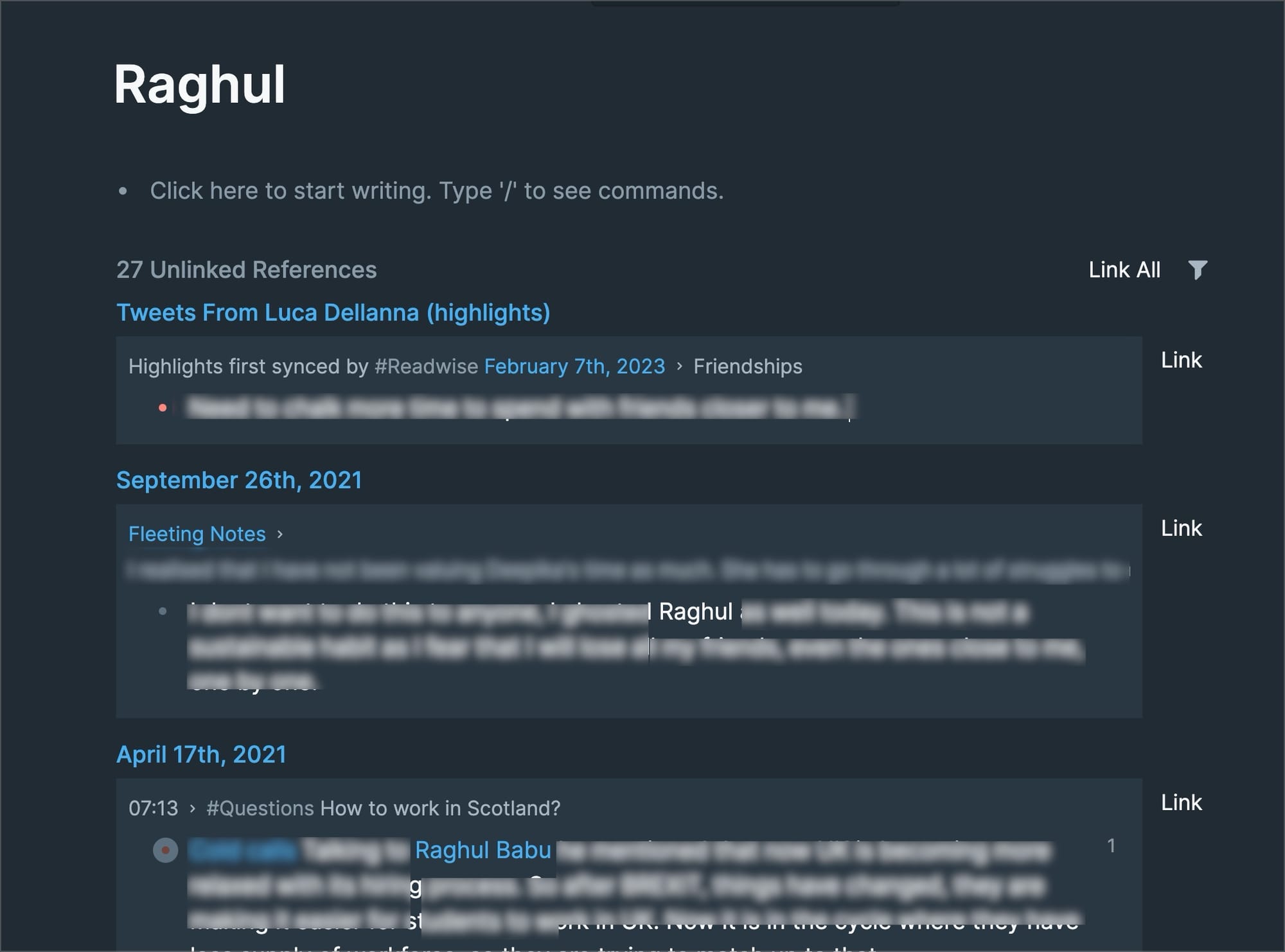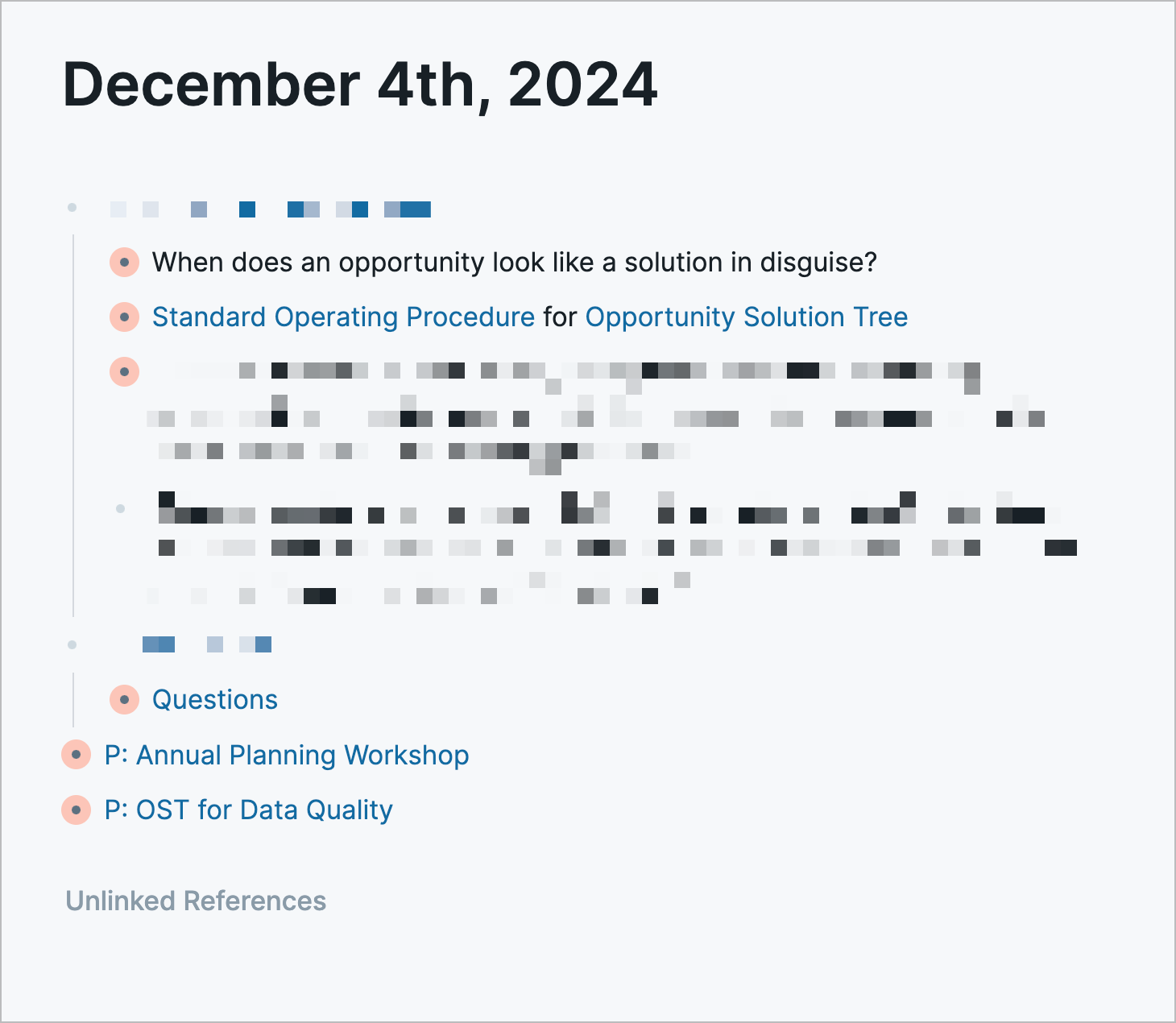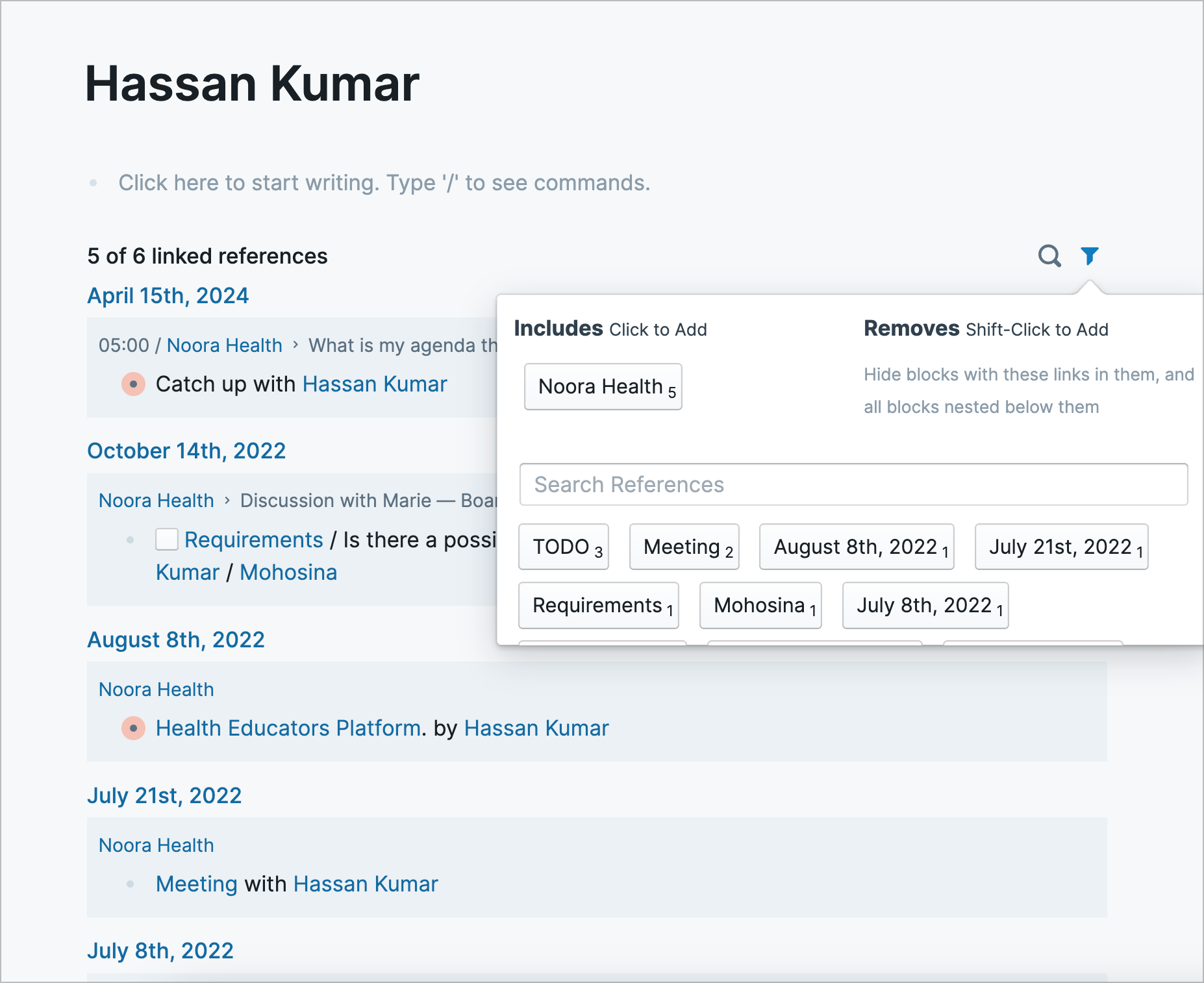Strongly recommend everyone to keep private notes about people.
These could even be some random jotted keywords: "served in the navy", "capuccino lover", "biker", "loves going on long walks", and so on. When private notes accumulate over time in the form of a database, they start showing emergent properties.
As Derek Sivers rightly points out in his essay: having your own database is one of the most powerful things you could do, and it isn't as complicated as it sounds with all the tools/softwares at our disposal nowadays.
I also had the good fortune to meet Sivers when he had come down to Bangalore. I still remember the moment when he asked me if he could record our conversation for documentation purposes in his neat little casette recorder. I wasn't any celebrity who was expecting a podcast episode any moment with Tim Ferris. Sivers was just curious, and he had something to learn from anyone he met (myself included)
I was intrigued around his process of documenting his private notes around people, and chanced upon his own essay on the beauty of a people database.
Because the other best feature of a database is that it can personalize your communication. Instead of blasting out a message like “Hey everyone. How are you?”, your database will send out personalized emails like, “Hey James. How are you?” — “Hey Sarah. How are you?”. Not only does it get their attention better, but it’s just more polite.
It will keep a history of your communication with everyone. This helps when you hear from someone for the first time in years. It can remind you who they are, and show you the last time you spoke. It also helps you do things like find just the people you haven’t heard from in over a year. You can set calendar reminders, so it can remind you to follow-up with someone later.
By the time I had finished reading his blog, I'd already consumed the red-pill.
I was then on a hunt, frantically researching various tools that could help me build databases around anything I'd wanted. Especially for my notes on people around me.
For years, until then, building a personal CRM was to me, a pipe dream. It never materialised. Every new software I tried didn't have the right affordances. Even using Airtable, which is one of the best pieces of software to create flexible DBs, didn't quite feel right. There was no "PERFECT" system.
What hit closest to home was Roam Research. The beauty of Roam Research (or the key feature that would make you fall in love with this software are ... bidirectional links). Each page will suggest other pages that are related to your keywords: you will find these suggestions at the bottom of each page you have created.
And you can decide to link these pages together or not. For instance, here in this example, even though I have not created a specific page for a person "Raghul", If I just search the software for this term "Raghul", I can find all the references/instances of "Raghul" and magically link them to create a page out of it.

It's all about bi-directional curation. Do this for a while, and you automatically create a graph connecting all your thoughts, and people, projects etc. This is a fun way to grow your digital hive mind.

The best benefit from using Roam is the amount of context switching you could avoid by having a 'one-stop-for-all' needs.
Instead of having separate softwares for different purposes of note-taking, I put them all into Roam Research. Right from my personal projects, work related discussions, personal reflections, notes around people, or even random ideas. All of these get logged into Roam as a Daily note.

And even this effort is very minimal, as I don't have a conventional file cabinet arrangement of folders and files. Each bullet point on your Daily Note is a note which can be searched, and queried (just like a database!).

And with this, comes various other benefits:
I could read through a detailed notes around a person (even if a specific page is not created around the person!). I can then refine my search further by adding more keywords. What if I want to look for my notes around, say, "Hassan Kumar" while I was working with him at "Y":

Now that I have reasonable amount of notes around people, and themes, I can synthesize on a larger level by even seeing overlaps between people and their interests. I've given several intros between people this way.
I've been using this system for 4+ years and have started seeing compound gains on having this resource. With these database superpower, If I wished to reconnect with an old friend, I no longer start the conversation with an, 'Hi, how are you?'
